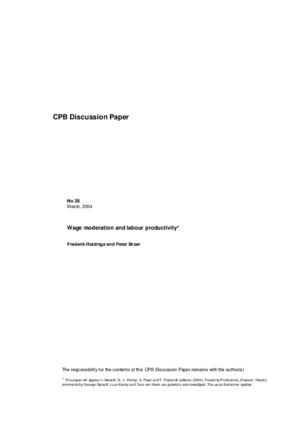Wage moderation and labour productivity
Loslaten loonmatiging niet goed voor groei arbeidsproductiviteit
We are sorry, unfortunately there is no English translation of this page.
Contacts

In the Dutch economic policy debate, wage moderation is widely considered as a key factor for achieving economic growth and low unemployment. However, some economists criticise the policy emphasis on wage moderation, claiming that high wages are needed to maintain structural labour productivity growth.
This paper analyses the effects of a wage push on labour productivity within the framework of endogenous technological progress, endogenous technology adoption and insufficient competition. The conclusion is that a wage push raises labour productivity in the short run. However, this rise in labour productivity is temporary and inefficient. In the long run, a wage push may well harm labour productivity.
The main message of the paper is that it is probably best not to use wage policy at all as a tool to influence productivity. As a tool against unemployment, however, it is very effective. These insights are applied in a review of the Dutch post-war productivity growth.
Downloads
Authors

